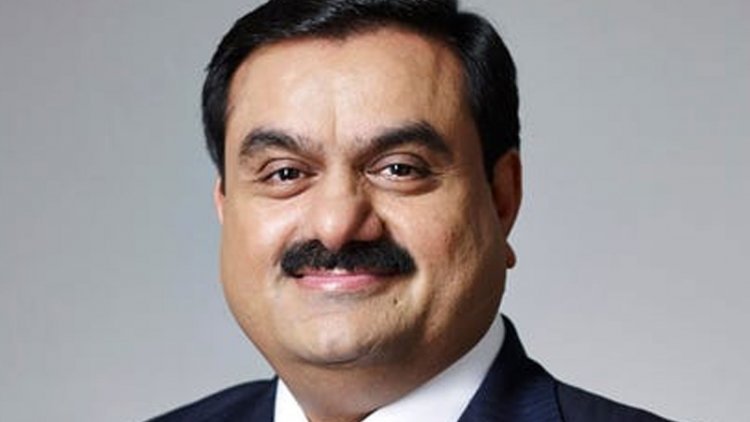India will have the second-largest economy in the world by 2050, with GDP growth of a trillion dollars per year: Gautam Adani
The 60-year-old Adani claimed that the fundamentals of India's expanding economy may have come into play and that the country's ability to implement several structural reforms in the political and administrative system has been made possible by a majority government.

According to Gautam Adani, the richest man in Asia, India would add a similar amount to its GDP every 12 to 18 months and will have the second-largest economy in the world by 2050. It took 58 years for India to reach that milestone.
Back-to-back global crises, he claimed, have called into question a number of presumptions, including that China should adopt western democratic principles, secular principles are universal, the EU would remain united, and Russia would be forced to accept a diminished international role. He was speaking at the 21st World Congress of Accountants in this city.
The myth of a unipolar or bipolar world of superpowers that could intervene and stabilise global environments has been disproved, according to him, by this multilevel crisis.
"Superpowers will need to be those that take responsibility to step in and help others in a crisis and not bully other nations into submission, those that keep humanity as their foremost operational premise, in my view — in this growing multipolar world." He asserted that a superpower must be both a vibrant democracy and agnostic to the notion that "there is no one universal model of democracy." "Capitalism that prioritises expansion for its own sake and disregards a society's social fibre is properly encountering its largest opposition ever," he said.
Adani, 60, claimed that the fundamentals of India's expanding economy may now be important and that the country's majority administration has given it the power to start various structural reforms in the political and administrative system.
We needed 58 years to reach our first trillion in GDP, 12 years to reach the second trillion, and only 5 years to reach the third trillion.
"Given the pace at which the government has been carrying out a vast multitude of concurrent social and economic reforms, I anticipate that within the next decade, India will start adding a trillion dollars to its GDP every 12 to 18 months - putting us well on track to be a USD 30 trillion economy by 2050 and with a stock market capitalization that will possibly exceed USD 45 trillion," he said.
At 3.5 trillion USD, India has the fifth-largest gross domestic output (GPD) in the world. In contrast, the US has a USD 23 trillion GDP and a USD 45–50 trillion stock market value.
The only major country on a path to becoming a high-income nation without compromising its democracy and diversity, he claimed, is a country that was crushed and drained by its colonial rulers but is now poised for extraordinary growth.
We will have the third-largest economy in the world by 2030, and we will overtake that position to become the second-largest economy in the world by 2050. By 2050, India's share of the global GDP in purchasing power parity (PPP) will be close to 20%.
"There is no precedent for India's achievement in fusing economic prosperity and democracy. There has never been a better time to identify as Indian, live in India, and interact with Indians. The groundwork has already been done to create a new, resilient India "said he.
With a population of 1.6 billion and a per capita income of USD 16,000—more than 700% higher than the per capita income today—Adani projected that India's median age would be just 38 years in 2050.
In a sign of growing international confidence in India, FDI will surpass one trillion dollars.
"India added a unicorn every nine days in 2021. It carried out an astounding 48 billion real-time financial transactions, the most ever recorded worldwide. This was six times more than the sum of the United States, Canada, France, and Germany "VC funding will surpass USD 50 billion this year, he added, representing a 50x acceleration in 8 years.
India can become a net exporter of green energy by 2050, according to Adani, whose ports-to-energy conglomerate is investing USD 70 billion over the following ten years in a new energy value chain.
"We will need stronger mandates wherein corporates are compelled to rise to the challenge of enabling a social structure that recognises the core of our culture and is aligned with our national needs," he said. "As both domestic companies and multinationals take advantage of India's market size, we will need stronger mandates."
"India cannot just be seen as a place to "make and take" money from outside of its borders. For this reason, I argued that the superpowers in the multipolar world must understand that there is no one-size-fits-all approach to democracy."




 admin
admin 




















